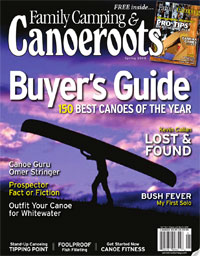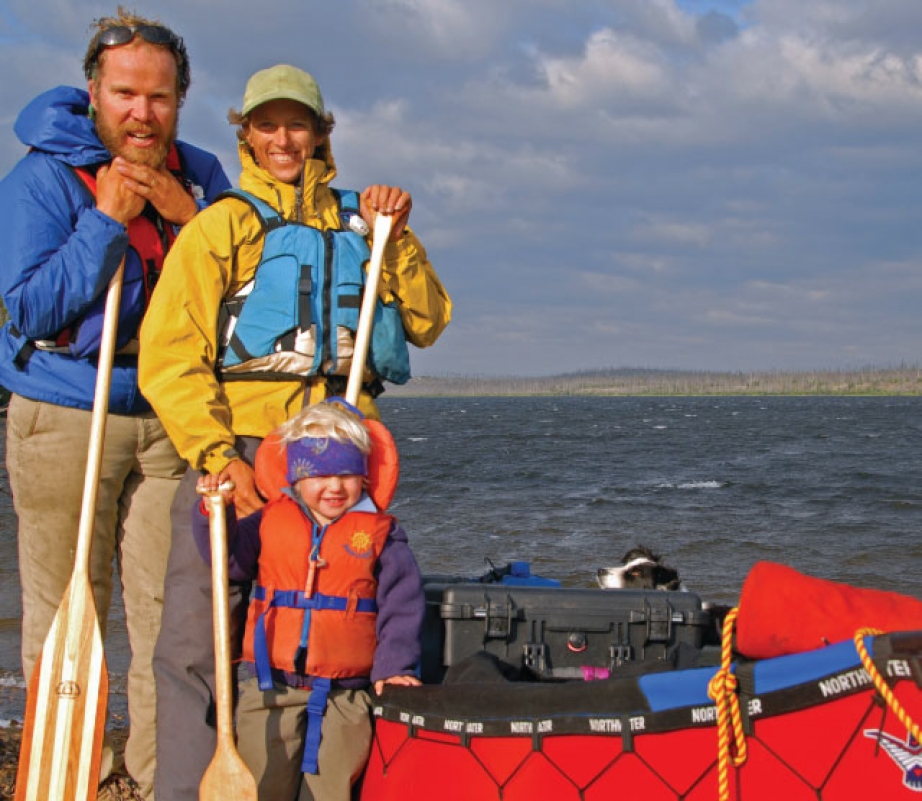Karsten Heuer and Leanne Allison are no strangers to long expeditions. But their last undertaking to cross the country by paddle, sail and train to meet an iconic writer quickly took the form not of an expedition but a pilgrimage.
For writer Heuer and filmmaker Allison, the story began in 2005 when Heuer sent an unsolicited draft of his book Being Caribou to Farley Mowat. As childhood devotees of the 86-year-old writer the couple was amazed a few weeks later when Mowat called and invited them to visit his Cape Breton farm. Living in Canmore, Alberta, Heuer and Allison weighed the options for getting there. Then they realized that Mowat had already written a multi-volume guidebook for them: Why not plot a route over land and water, criss-crossing the settings of Mowat’s books?
And so the Finding Farley project was born. Last May, Allison, Heuer and their two-year-old toddler Zev loaded up their Prospector and dropped it into the Bow River near their home.
The early stretch of their journey had the family paddling through the setting of Owls in the Family and The Dog Who Wouldn’t Be, two of Mowat’s novels about growing up in the Saskatchewan prairies.
By summer, they were deep into the northern wilds, battling long portages, a thick haze of bugs and a near-miss with a sleeping polar bear.
They followed the Cochrane and Thlewiaza Rivers through Manitoba into Nunavut, passing the barren settings of several of Mowat’s books, including No Man’s River and Lost in the Barrens.
“Farley remembers being terrified running these rivers with his life in the trapper’s hands,” says Allison. “He knows how unforgiving the landscape can be.”
From Churchill, Manitoba, they caught a train to Quebec and then sailed across the Gulf of St. Lawrence to Newfoundland. After three days on the choppy seas they pulled into Burgeo, the setting for Mowat’s 1972 novel A Whale for the Killing.
In early fall, the family sailed to Nova Scotia and anchored in the bay at St. Peters, where Mowat stood waiting on the shore.
Despite having never met, the group soon fell into easy rapport. “There was already such a shared history,” says Allison. “It felt more like a reunion than an introduction.”
The family spent three days exchanging tales from the Barren Lands with the Mowats. Mowat admitted being worried throughout the family’s pilgrimage, despite—or perhaps because of—his own extensive travels across the same land.
“He had tried a few times along the way to dissuade us,” says Allison. “So he was very happy to finally have us safely ashore.”—Amy Flynn Stuart
 This article first appeared in the Spring 2008 issue of Canoeroots Magazine.
This article first appeared in the Spring 2008 issue of Canoeroots Magazine.




